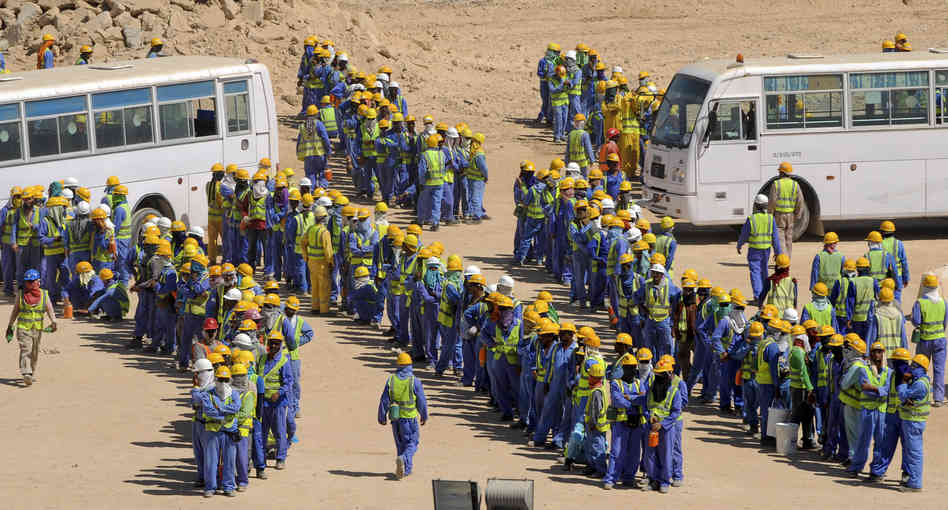Qatar Foundation report slams weak labour recruitment processes
Report suggests corrective, preventive measures for Qatari government

RELATED ARTICLES: FIFA facing calls to re-vote on Qatar World Cup | Qatar steps up labour rule reforms | Qatar FA president hits back against World Cup detractors
Labour recruitment processes in Qatar are “unethical” and need to be dealt with in accordance with government support, as per a report recently prepared for Qatar Foundation, a government, not-for-profit body in the country.
‘Migrant Labour Recruitment to Qatar’ was authored for Qatar Foundation by Dr Ray Jureidini, director for research at the Foundation’s center of design innovation. The report focuses extensively on the life and employment conditions of those migrant workers hired for the construction of stadiums and other related infrastructure required for the Fifa World Cup 2022, and  identifies the core concerns that impact the construction workers living in Qatar.
“Low skilled prospective migrant workers in the countries of origin are paying far more than the maximum recruitment commissions allowed by their governments in addition to other costs,” the report says. “These costs are being paid to private licensed recruitment agencies as well as unlicensed agencies, sub-agents and individual brokers. Some of these charges are being redirected to placement agencies and contracting companies within Qatar.
“Sub-agents recruiting in the outer regions of the (labour sending) countries are often crucial to meet the labour supply, yet these agents are not licensed and thus operate illegally,” the report continues. “They can be the original source of deception, false promises and financial exploitation. They need to be regulated in some way or bypassed entirely.”
While several recommendations made by the report have previously been suggested by independent bodies such as the amnesty, Human Rights Watch and DLA Piper – which was hired by the Qatari government to produce a labour research study – the government-funded Foundation’s report is a critical move at a time when the country is grappling with corruption charges in addition to allegations of labour mismanagement.
In its concluding remarks, the 162-page report states Qatar could form bilateral ties with foreign governments to ensure labour recruitment and transfer is undertaken through fair and measurable channels. “Qatar could enter into renewed bilateral arrangements with sending countries (or to maintain representative monitors there) to ensure proper regulation and policing of recruitment agencies and individual recruiters according to ethical recruitment standards
“Changes that reduce the commissions of intermediaries would inevitably reduce the cost of recruitment that is borne by the employer; at the same time reducing, or eliminating, debt bondage and all the vulnerabilities that follow from it.”























